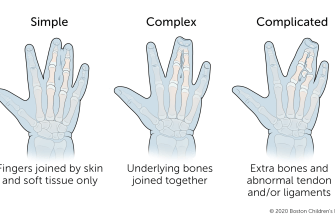Dental cavities, also known as tooth decay, are a common oral health issue that affects people of all ages. They occur when the hard outer layer of the tooth, known as enamel, is damaged by acid-producing bacteria. If left untreated, dental cavities can lead to pain, infection, and even tooth loss. However, with proper dental care and regular check-ups, cavities can be prevented and treated effectively.
Understanding Dental Cavities
Dental cavities are caused by a combination of factors, including poor oral hygiene, a diet high in sugary and acidic foods, and a lack of fluoride. When we consume foods and drinks that contain sugars and starches, the bacteria in our mouth produce acids that attack the tooth enamel. Over time, these acids can break down the enamel, leading to the formation of cavities.
Common symptoms of dental cavities include:
- Toothache or pain
- Sensitivity to hot, cold, or sweet foods and drinks
- Visible holes or pits in the teeth
- Discoloration or dark spots on the tooth surface
Preventing Dental Cavities
Prevention is key when it comes to dental cavities. By following a few simple steps, you can significantly reduce your risk of developing cavities:
1. Maintain Good Oral Hygiene
Brush your teeth at least twice a day with fluoride toothpaste and a soft-bristled toothbrush. Make sure to brush all surfaces of your teeth and along the gumline. Additionally, floss daily to remove plaque and food particles from between your teeth.
2. Limit Sugary and Acidic Foods
Reduce your consumption of sugary and acidic foods and drinks, such as soda, candy, and fruit juices. These substances can contribute to the formation of cavities. If you do indulge in these treats, rinse your mouth with water afterward or brush your teeth to minimize the acid exposure.
3. Use Fluoride Products
Fluoride is a mineral that helps strengthen tooth enamel and protect against cavities. Use fluoride toothpaste and consider using a fluoride mouthwash or receiving professional fluoride treatments from your dentist.
4. Drink Water with Fluoride
Drinking water that contains fluoride can also help prevent cavities. If your tap water is not fluoridated, talk to your dentist about fluoride supplements or alternative sources of fluoride.
Treating Dental Cavities
If you suspect you have a dental cavity, it is important to seek treatment from a dentist as soon as possible. The treatment options for dental cavities depend on the severity of the decay:
1. Dental Fillings
Dental fillings are the most common treatment for cavities. During this procedure, the dentist removes the decayed portion of the tooth and fills the space with a dental filling material, such as composite resin or amalgam. Fillings restore the tooth’s function and prevent further decay.
2. Dental Crowns
If the decay is extensive and has weakened the tooth, a dental crown may be necessary. A crown is a custom-made cap that covers the entire tooth, providing strength and protection. Crowns are typically made of porcelain, metal, or a combination of both.
3. Root Canal Therapy
If the decay has reached the tooth’s pulp, where the nerves and blood vessels are located, a root canal may be required. During this procedure, the dentist removes the infected pulp, cleans the root canal, and seals it with a filling material. A crown is often placed on top of the tooth to restore its structure.
4. Tooth Extraction
In severe cases where the tooth cannot be saved, extraction may be necessary. After the tooth is removed, options for tooth replacement, such as dental implants or bridges, can be discussed with your dentist.
Maintaining Dental Health
Once you have received treatment for dental cavities, it is crucial to maintain good oral health to prevent future cavities:
1. Practice Good Oral Hygiene
Continue to brush your teeth twice a day, floss daily, and use fluoride products as recommended by your dentist. This will help remove plaque and bacteria, reducing the risk of cavities.
2. Follow a Healthy Diet
Eat a balanced diet that is low in sugar and acidic foods. Include plenty of fruits, vegetables, and dairy products, which provide essential nutrients for strong teeth and gums.
3. Schedule Regular Dental Check-ups
Visit your dentist regularly for check-ups and professional cleanings. Your dentist can detect early signs of cavities and provide preventive treatments, such as dental sealants, to protect your teeth.
4. Consider Dental Sealants
Dental sealants are thin, protective coatings that are applied to the chewing surfaces of the back teeth. They create a barrier against bacteria and food particles, reducing the risk of cavities in these vulnerable areas.
In conclusion, dental cavities are a common oral health problem that can be prevented and treated with proper dental care. By maintaining good oral hygiene, following a healthy diet, and seeking regular dental check-ups, you can significantly reduce your risk of developing cavities. If cavities do occur, prompt treatment from a dentist is essential to prevent further damage and preserve your dental health. Remember, prevention is always better than cure when it comes to dental cavities!








